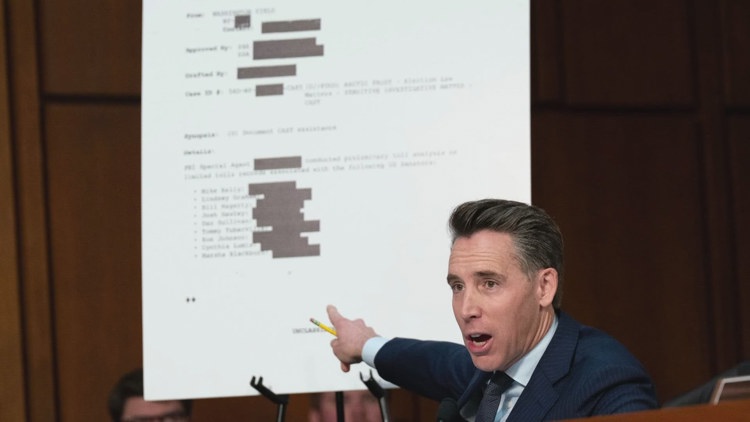
A recently passed bill to end the longest government shutdown in U.S. history has sparked controversy due to a hidden clause that could financially benefit eight sitting senators. The provision, embedded within the *394-page* legislation to reopen the government, permits senators to sue the U.S. government for at least $1 million each if their phone or digital records were accessed without notice by federal investigators.
This clause is retroactive to 2022 and reportedly applies to eight Republican senators whose records were subpoenaed during Special Counsel Jack Smith’s investigation into the events surrounding the 2020 election. The text of the provision states: “…any senator whose Senate data, or the Senate data of whose Senate office, has been acquired, subpoenaed, searched, accessed, or disclosed in violation of this section may bring a civil action against the United States…”
Each senator could potentially claim damages for two separate violations: one for the subpoena and one for the nondisclosure order, leading to a possible payout of over $2 million per individual, all funded by U.S. taxpayers. The senators involved include Lindsey Graham of South Carolina, Bill Hagerty of Tennessee, Josh Hawley of Missouri, Dan Sullivan of Alaska, Tommy Tuberville of Alabama, Ron Johnson of Wisconsin, Cynthia Lummis of Wyoming, and Marsha Blackburn of Tennessee.
Criticism from Congressional Leaders
The unexpected provision has drawn sharp criticism from various members of Congress. Representative Johnny Olszewski (D-Md.) labeled it as “corruption at a whole new level,” highlighting the fact that the legislation allows senators to effectively write themselves million-dollar checks while the American public faces cuts to essential services such as food assistance and healthcare.
Representative Alexandria Ocasio-Cortez (D-N.Y.) condemned the measure, questioning its legitimacy and calling it “unconscionable.” She emphasized the disparity between the financial windfall for a select group of senators and the broader issues facing their constituents.
Concerns Over Legislative Self-Dealing
House Democrats have labeled the amendment a corrupt “jackpot,” inserted at the last moment into the legislation. Jamie Raskin, ranking member of the Judiciary Committee, asserted during a floor debate that it represents one of the most egregious acts of legislative self-enrichment witnessed in Congress. “This bill…contains the single most corrupt provision for legislative self-dealing,” Raskin stated, underscoring that it was opposed by all House Democrats in the Rules Committee.
The amendment would eliminate the government’s sovereign immunity for such lawsuits, weakening protections for federal law enforcement agencies and almost guaranteeing payouts if any senator chooses to sue. Despite the bipartisan backlash against the provision, House leadership decided to move forward with the broader deal to restore federal operations, promising to revisit or repeal the contentious section in the coming weeks.
With the government now reopened, the fallout from this hidden clause could have lasting implications for public trust and perceptions of accountability within the legislative branch.







